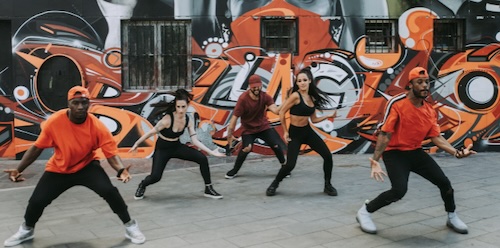A strange blend of old tales and modern tricks with sound has made listeners and players notice an odd likeness between the sounds in Gates of Olympus and the styles that mark today’s rap production. The well-liked internet slot game, based on stories from Greek myths, is known for its brave look, but it is the sounds of the game that have lately caused much interest.
Players spin the reels below Zeus, who watches over them. As the reels stop, players are met with audio cues—punchy snares, deep bass hits, and rhythmic sweeps—which might feel right at home in a top rap track. In this way, Gates of Olympus is silently bridging a cultural gap as it takes the techniques of today’s music makers to create an unmistakably modern gaming experience.
Layered Beats and Snares in a Trap Style
From a technical perspective, sound designers noted that most of the in-game effects resemble elements that are typical in rap and hip hop. Very fast hi-hat rolls, more identifiable with the trap subgenre, stand out. In Gates of Olympus, these high-frequency percussion sounds run with bonus triggers and cascading wins, bringing urgency and kinetic energy to every play session.
The layered bass strikes employed to underscore jackpot moments share a close likeness with the “808” bass drum sounds favoured by modern rap makers. In both situations, the sonic aim is identical: to make an instant, deep impact that resonates with the listener. For players, this mixture of sound and action boosts involvement, turning a simple slot spin into a moment of musical drama.
Studio Techniques in a Slot Game World
Beyond individual effects, Gates of Olympus employs approaches that are more typical of studio albums rather than video game soundtracks. Audio layering—a common practice in professional music production—is evident throughout the game. Background pads and atmospheric synths subtly change in tone as the gameplay progresses, much like the dynamic intros and outros of contemporary rap tracks.
Also, the game’s use of recorded sounds adds additional layers of depth. Just like rap creators dig up old songs for vocal pieces or musical touches, the sound makers behind Gates of Olympus add drum-like sounds that reflect the clinking of old coins and the clanging of metal, linking the game’s mythical theme while at the same time making its sound current and sleek.
Reaching a Shared Audience
Another reason for the crossover is the common demographics of rap music fans and online gaming audiences. Both fields draw younger, digital-savvy players who are more conscious of the nuances in contemporary audio trends. Through rap-inspired production elements in Gates of Olympus, developers have created a soundtrack that feels fresh and relevant to this core market.
Beyond sound design, the game’s resonance also stems from its appeal to shared audiences. By this, the game also helps bring about a bigger trend: the fading of clear borders between music, gaming, and pop culture. Now it is common for players to encounter gaming moments that resemble their favourite Spotify tracks, or for music makers to get ideas from the fun worlds of video games.
The Future of Game Sound Design
As this evolution unfolds, Gates of Olympus becomes a compelling illustration of what contemporary game audio can accomplish. By taking and modifying production techniques from rap music, they have created a soundscape that is both engaging and culturally relevant. This points to a future where gaming audio becomes increasingly advanced by borrowing freely from across the musical spectrum to better the player experience.
With the lines between genres and media continuing to blur, it may not be long before players encounter even more slot games whose soundtracks rival those of top-tier rap albums. For now, Gates of Olympus offers a glimpse of this potential—a game where ancient myth meets modern beat, and where each spin sounds as cutting-edge as it looks.

